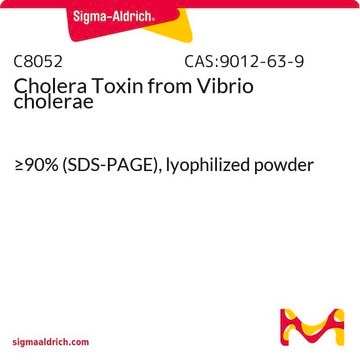3867
Hydrocortisone
Steroid hormone of the adrenal cortex with anti-inflammatory properties.
Sinónimos:
Hydrocortisone, Cortisol
About This Item
Productos recomendados
Quality Level
assay
≥98% (TLC)
form
solid
manufacturer/tradename
Calbiochem®
storage condition
OK to freeze
color
white to off-white
solubility
ethanol: 15 mg/mL
shipped in
ambient
storage temp.
10-30°C
InChI
1S/C21H30O5/c1-19-7-5-13(23)9-12(19)3-4-14-15-6-8-21(26,17(25)11-22)20(15,2)10-16(24)18(14)19/h9,14-16,18,22,24,26H,3-8,10-11H2,1-2H3/t14-,15-,16-,18+,19-,20-,21-/m0/s1
InChI key
JYGXADMDTFJGBT-VWUMJDOOSA-N
General description
Biochem/physiol Actions
Steroid hormone of the adrenal cortex with anti-inflammatory properties
Warning
Preparation Note
Reconstitution
Legal Information
signalword
Danger
hcodes
Hazard Classifications
Repr. 1A - STOT RE 2
target_organs
Adrenal gland,Bone marrow
Storage Class
6.1C - Combustible acute toxic Cat.3 / toxic compounds or compounds which causing chronic effects
wgk_germany
WGK 2
flash_point_f
Not applicable
flash_point_c
Not applicable
Certificados de análisis (COA)
Busque Certificados de análisis (COA) introduciendo el número de lote del producto. Los números de lote se encuentran en la etiqueta del producto después de las palabras «Lot» o «Batch»
¿Ya tiene este producto?
Encuentre la documentación para los productos que ha comprado recientemente en la Biblioteca de documentos.
Los clientes también vieron
Nuestro equipo de científicos tiene experiencia en todas las áreas de investigación: Ciencias de la vida, Ciencia de los materiales, Síntesis química, Cromatografía, Analítica y muchas otras.
Póngase en contacto con el Servicio técnico




